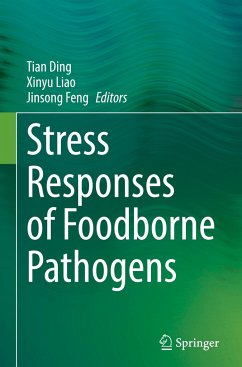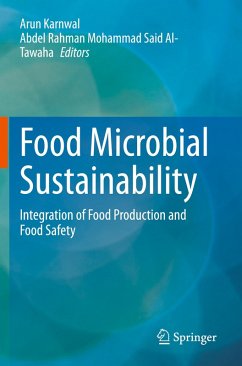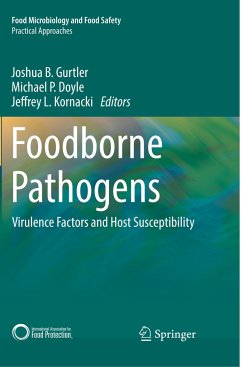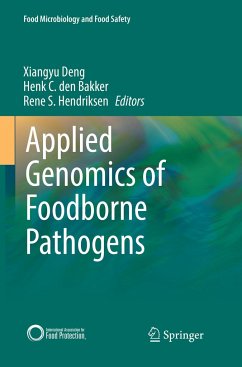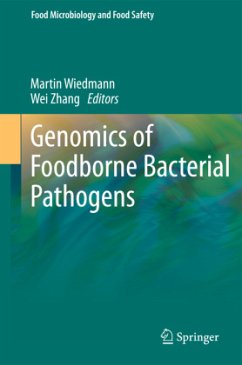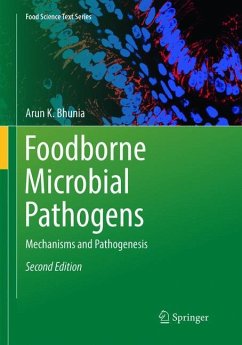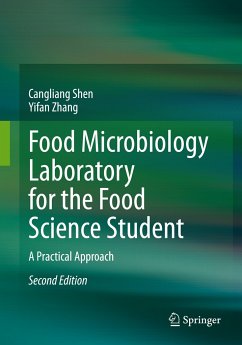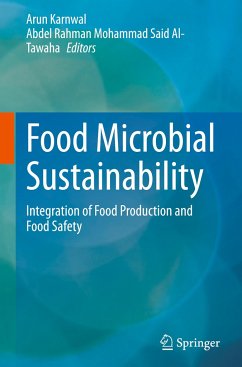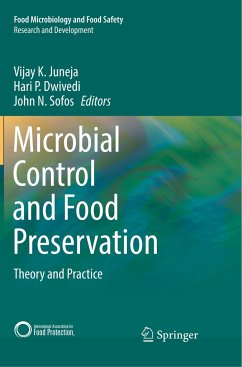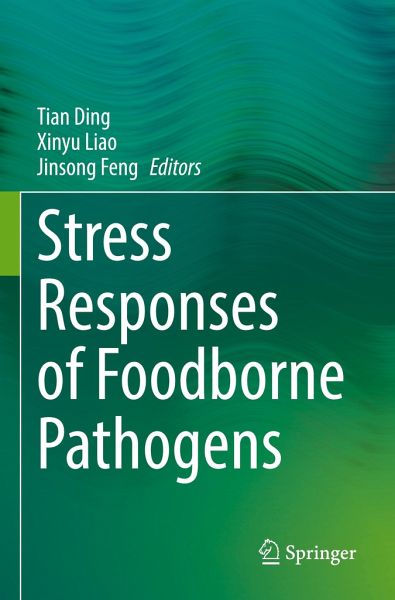
Stress Responses of Foodborne Pathogens
Versandkostenfrei!
Versandfertig in 6-10 Tagen
174,99 €
inkl. MwSt.

PAYBACK Punkte
87 °P sammeln!
Food-borne bacterial pathogens encounter a number of stressors during food processing and preservation. More and more pathogens are able to adapt their physiological properties and/or genetic expression to survive these stressors and pose a risk to food safety and public health.This book provides the reader with a comprehensive overview of common food processing-associated stressors (e.g., heat, cold, acid, osmosis, and oxidation) and deals with the molecular basis of the respective bacterial stress response mechanisms (e.g., viable but nonculturable state, biofilm formation, sporulation, and ...
Food-borne bacterial pathogens encounter a number of stressors during food processing and preservation. More and more pathogens are able to adapt their physiological properties and/or genetic expression to survive these stressors and pose a risk to food safety and public health.
This book provides the reader with a comprehensive overview of common food processing-associated stressors (e.g., heat, cold, acid, osmosis, and oxidation) and deals with the molecular basis of the respective bacterial stress response mechanisms (e.g., viable but nonculturable state, biofilm formation, sporulation, and cross-protection response).
Additionally, various chapters cover the response mechanisms of foodborne pathogens to emerging nonthermal sterilisation technologies such as ultrasound, high-pressure processing, pulsed electric fields, ultraviolet light, irradiation and phytochemicals.
Through this book we also learn about future prospects for the efficient control of stressadaption in foodborne pathogens to ensure maximum consumer safety.
This book offers a valuable resource for researchers, graduate students, food process engineers and product developers in the fields of food science and microbiology.
This book provides the reader with a comprehensive overview of common food processing-associated stressors (e.g., heat, cold, acid, osmosis, and oxidation) and deals with the molecular basis of the respective bacterial stress response mechanisms (e.g., viable but nonculturable state, biofilm formation, sporulation, and cross-protection response).
Additionally, various chapters cover the response mechanisms of foodborne pathogens to emerging nonthermal sterilisation technologies such as ultrasound, high-pressure processing, pulsed electric fields, ultraviolet light, irradiation and phytochemicals.
Through this book we also learn about future prospects for the efficient control of stressadaption in foodborne pathogens to ensure maximum consumer safety.
This book offers a valuable resource for researchers, graduate students, food process engineers and product developers in the fields of food science and microbiology.





